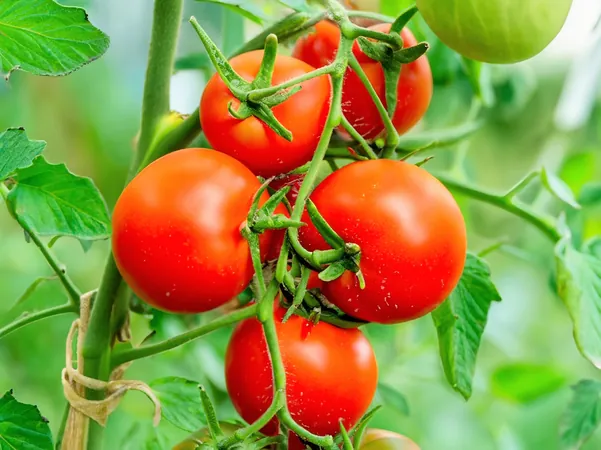
Revolutionizing Agriculture: Silk Microneedles Heal Crops with Precision
2025-05-01
Author: Daniel
A Game-Changer in Farming
Imagine a world where farmers can inject nutrients directly into their crops with surgical precision. Recent breakthroughs from MIT and the Singapore-MIT Alliance for Research and Technology are making this dream a reality. Scientists have developed hollow microneedles made from natural silk proteins, designed to directly deliver fertilizers, nutrients, or diagnostic probes straight into plant tissues.
The Pain of Traditional Methods
Farmers currently face a significant dilemma: traditional agricultural chemicals often drift away from their intended targets, contaminating soil and water while raising costs. As much as half of certain applications vanish into the environment, leaving farmers frustrated and ecosystems burdened.
Silk Needles: A Precision Solution
Benedetto Marelli, a leading researcher in the study, emphasizes the urgent need for precise agrochemical delivery. Traditional spraying methods can blanket entire canopies when only specific plants require treatment. Silk microneedles, however, provide a focused delivery system, injecting nutrients directly into a plant's vascular network, significantly reducing waste.
Innovating with Simplicity
Drawing inspiration from medical microneedles used for painless vaccinations, the team created hollow, robust silk needles using a simple fabrication method that requires no clean room. Instead of relying on complex lithography, they mixed silk fibroin with saline, molding it into tiny cones which left behind effective, lightweight needles capable of penetrating plant surfaces.
Healing Crops Efficiently
Iron deficiency, known to stunt the growth of many crops, particularly tomatoes, can be effectively treated with these microneedles. Traditional iron sprays often oxidize before reaching the plant roots. However, the silk needles can swiftly deliver iron chelate directly into affected tissue, reversing chlorosis with minimal material, thanks to their slow-release capabilities.
Boosting Nutritional Value
Furthermore, researchers exploring biofortification have achieved exciting results by embedding vitamin B12 into tomatoes, a nutrient rare in plant-based diets. This method demonstrates potential for enriching crops without the need for genetic modifications.
Real-Time Diagnostics
The utility of silk microneedles doesn't stop at nourishment; they also serve as diagnostic tools. For example, the team successfully used the needles to detect cadmium absorption in tomatoes grown in contaminated solutions, significantly earlier than conventional methods.
Automation on the Horizon
Currently manually deployed, the vision for these silk needles is vast. Marelli imagines a future where robotic arms or drones precisely administer treatments to individual plants flagged by imaging technology, ensuring that nutrients and pesticides are only applied when necessary.
A Sustainable Future for Agriculture
As global food demand skyrockets amid water scarcity and climate challenges, precision agriculture tools like silk microneedles are essential. They promise to enhance crop care, minimize waste, and create a more sustainable farming ecosystem, ensuring that agriculture and the environment can coexist harmoniously.
This pioneering research is published in the journal Nature Nanotechnology, paving the way for a future where agriculture thrives while the environment stays intact.



 Brasil (PT)
Brasil (PT)
 Canada (EN)
Canada (EN)
 Chile (ES)
Chile (ES)
 Česko (CS)
Česko (CS)
 대한민국 (KO)
대한민국 (KO)
 España (ES)
España (ES)
 France (FR)
France (FR)
 Hong Kong (EN)
Hong Kong (EN)
 Italia (IT)
Italia (IT)
 日本 (JA)
日本 (JA)
 Magyarország (HU)
Magyarország (HU)
 Norge (NO)
Norge (NO)
 Polska (PL)
Polska (PL)
 Schweiz (DE)
Schweiz (DE)
 Singapore (EN)
Singapore (EN)
 Sverige (SV)
Sverige (SV)
 Suomi (FI)
Suomi (FI)
 Türkiye (TR)
Türkiye (TR)
 الإمارات العربية المتحدة (AR)
الإمارات العربية المتحدة (AR)